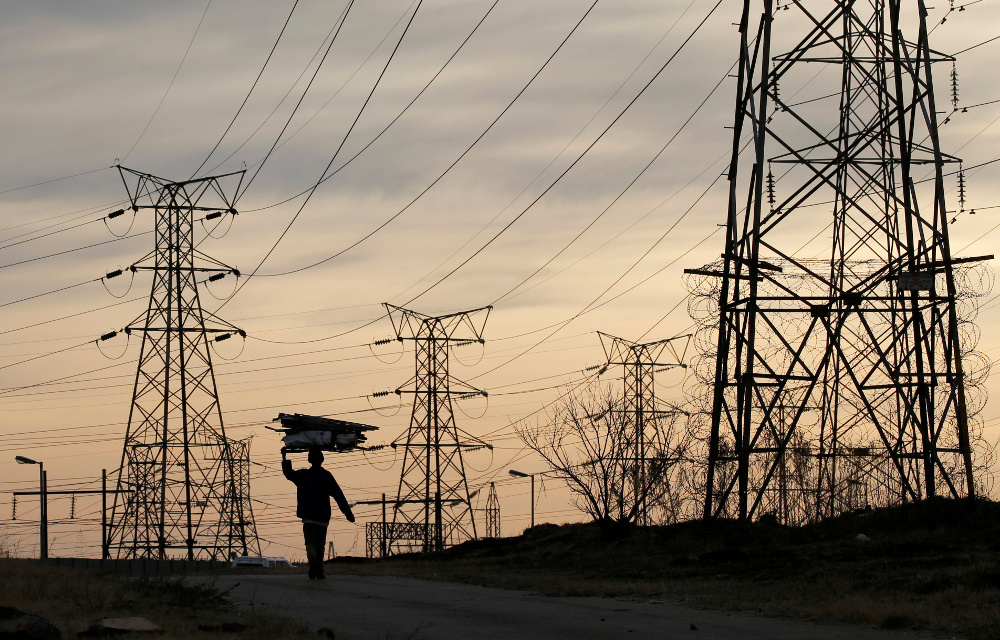I recently contemplated using SAA for the first time in years and was shocked to see how little is left of their routes. They have no presence at all in the Eastern Cape — despite the big hole left by the collapse of the local British Airways franchise.
Is this where Eskom is headed? A small rump of a once-proud company that was the envy of the rest of Africa?
Does it have to be like that? After all, Mark Barnes was on track to rescue the post office from a negative trajectory before his premature departure and Madoda Mxakwe appears to have put the SABC back on track to sustainability.
Eskom’s problems are deep-seated and the government does not appear to have a formula for success. The issue is bigger than who the chief executive is. There is a massive and potentially unrecoverable debt book. Unsustainable demands like a flat rate for Soweto residents are compounded by large numbers of illegal connections. Internally, there is a culture of resistance to change and reports of massive fraud and corruption.
Critics of Eskom chief executive André de Ruyter claim that he is incompetent and that a less incompetent black person in his position would have been ditched long ago. Some go so far as to claim that disgraced former chief executive Brian Molefe did a better job and charges of corruption have not been proved.
It is true that we are far from criminal charges against the main players, though some smaller actors have been charged and McKinsey has refunded Eskom about R1-billion. State capture is not only about looting the state but also about hollowing out state institutions designed to ensure accountability, including the National Prosecuting Authority, the South African Revenue Service, the prison service and the police. If we wait until we have fixed all of these, we will get nowhere.
The truth is hard to ascertain from the outside. The Zondo commission reported R14.7-billion of looting from Eskom alone, by far the biggest target of the Guptas. We know that the Kusile and Medupi coal-power station projects were incompetently managed and neither plant, despite massive cost overruns, has worked reliably. The recent rapid escalation to stage six load-shedding followed the tripping of generators at Kusile and Kriel power stations. Kriel is not new — it has been in service since 1979.
Eskom’s sole nuclear plant at Koeberg is undergoing upgrades and such is the level of distrust that a report that a steam generator had been dropped while being installed went viral before Eskom was able to correct the report — this actually happened 18 months ago at a factory in China.
Nonetheless repeated failures raise the question of whether any of Eskom’s plants are in sound working order.
More importantly, what can be done?
I have been tracking solar alternatives for some time. In the short term, this is the quickest way to take pressure off the grid. One of my work colleagues has spent about R200 000 on a solar-plus-battery solution that does not quite take him off the grid. On a stretch of cloudy weather, he still needs mains charging but he has reduced his monthly electricity bill from R1 500 to R25. With this sort of saving, he estimates that he will recover costs in 10 years.
Unfortunately, this is not a solution for the poor. Providing a solar panel for each RDP house as a way of providing a free electricity allowance for the poor would take too long to roll out to make a difference now, though I would still like to see it happen.
What could make a big difference quickly? If every bank that offers home loans contacted their clients and offered them the option to add the cost of a solar-plus-battery backup to their loan, we could put a lot more solar power in place fast. And the cost for the homeowners, if done right, would be better than zero as the savings in electricity costs would more than offset the extra loan instalment.
Another project I would like to pursue is solar power for public institutions. The obvious ones are schools, campuses and hospitals. Education is hard to continue when power keeps failing, especially where equipment like computers, labs and projectors are used. Hospitals need backup power at the very least for surgery and refrigeration of supplies. A generator is cheaper upfront but does not save ongoing electricity costs and is expensive to run. Funding this sort of project should be possible through donors without government involvement.
All of these can be pursued rapidly and ideally without any government involvement, which inevitably results in red tape, misspending and corruption.
Where does this leave Eskom? Inevitably, with a smaller customer base and less cash flow to fund transmission (long range, high voltage) and distribution (shorter range, lower voltage) infrastructure. It is also a challenge for municipalities, many of which rely on electricity cash flow to balance their budgets.
However, if we consider the bigger picture, failure to get a reliable power supply is a major inhibitor of economic development. With the economy stalled or even going backwards, there will be no money to pay for anything anyway. If, on the other hand, we unlock our economic potential, there will be other ways to pay for infrastructure and to balance municipal budgets. And getting the economy rebooted will reduce support for demands like a flat rate in Soweto.
State capture is inherently unsustainable and leads to a downward spiral. We cannot wait for the inevitably slow process of criminal prosecution and civil actions to recover illicit gains. We need action now that will make a difference fast and change the trajectory.



